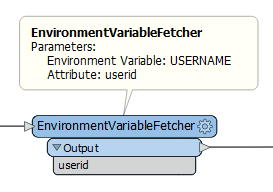Hi, From a running workspace i would like to write the userid,starttime, endtime, and the filename of the workspace into a metadatafile. Starttime an Endtime is possible with datetimstamper but it is not accurate.
Does someone know the solution?
Kind regard Kees





